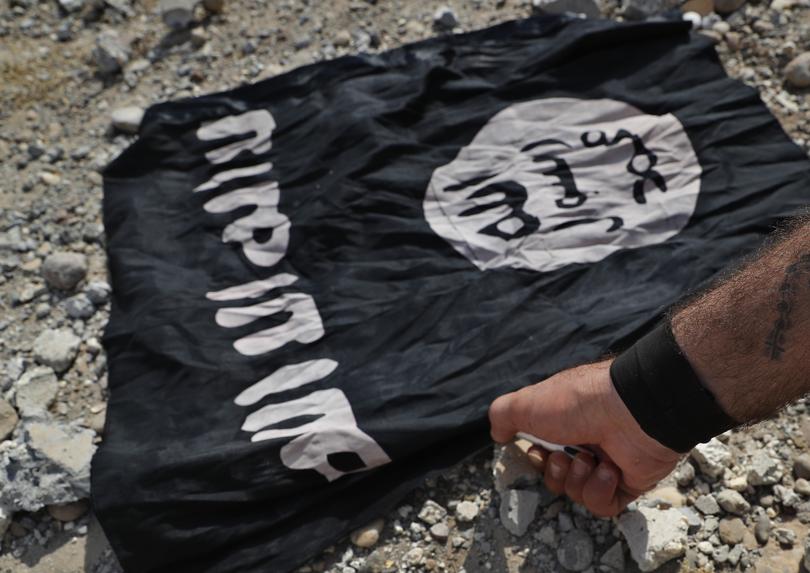MARK ALMOND: Is Islamic State planning a new wave of attacks in the US and the West?
MARK ALMOND: Almost a quarter of a century on from the devastating terrorist attacks on September 11, 2001, America is once again haunted by the risk posed by global terrorist groups.
Almost a quarter of a century on from the devastating terrorist attacks on September 11, 2001, America is once again haunted by the risk posed by global terrorist groups.
Nothing as grotesquely spectacular as 9/11 has happened again, but the carnage in New Orleans is a grisly reminder that ghostly Islamist terrorists still lurk in Western societies, even across the Atlantic.
The mayhem caused by the attacker – US citizen Shamsud-Din Jabbar, 42, whose truck carried an Islamic State flag – came out of the blue, at least from the perspective of the local authorities and police.
Sign up to The Nightly's newsletters.
Get the first look at the digital newspaper, curated daily stories and breaking headlines delivered to your inbox.
By continuing you agree to our Terms and Privacy Policy.From the first news of the attack, Islamic State websites have been echoing with sick celebrations of the violence.
This alone suggests that it was not the work of a lone wolf claiming to be an agent of IS, but was in fact organised from abroad by its underground HQ in the Middle East.
The fact that investigators found guns and concealed pipe bombs wired for remote detonation – as well as a corresponding remote control device inside the truck – was enough for the FBI to declare it does not believe the driver was acting alone.
Have US authorities and intelligence services taken their eye off the ball on domestic terror?
Have the American public became too complacent about the risk back home?
There is no doubt that, after 2017 when IS lost control of Syrian cities such as Raqqa and Mosul in Iraq, many assumed its threat had gone away.
In recent years, the US and her allies have concentrated on taking the war on terrorism into the Middle East, aware IS still has a sinister shadowy presence there.
On New Year’s Eve, French fighter bombers joined the American campaign against IS hideouts in Syria.
Since the fall of the Syrian dictator, Bashar al-Assad, Western eyes have been focused on what might become of the 40,000 or so IS activists and their families in that country.
Only minutes before the rampage in New Orleans, many Western terrorism experts were expressing relief at the failure of IS to disrupt New Year celebrations in Syria or Iraq.
But the relief was sadly premature.
Because, for all its previous ambitions to control territory in the Middle East, the IS leadership now sees so-called “spectacular” terrorist attacks abroad as its best way to grab the headlines.
Atrocities, especially in the US, act as recruiting sergeants for IS as it tries to indoctrinate sympathisers into taking part in terror activities and mass murder.

The fact that the New Orleans perpetrator was well equipped suggests he had training and backup.
He was wearing Kevlar body-armour and carrying a serious rifle.
As for the explosives, it is worth remembering that the Saudi man who crashed through the Christmas Market in Magdeburg in Germany two weeks ago had explosives in his BMW – though he, too, failed to detonate them.
Yet a vehicle running amok in a crowded place driven by a gunman is a potent terrorist weapon.
Both in Magdeburg and New Orleans the terrorist found a flaw in the security precautions so he could drive through a gap in them to plough into innocent pedestrians.
With forthcoming major events such as Donald Trump’s inauguration on January 20 and the Super Bowl – in New Orleans, of all places, on February 9 – the FBI and America’s other security agencies are going to need to race to get security precautions updated.
Another mass casualty event can’t be ruled out.
Eight years ago, Mr Trump began his first presidential term with a ban on Muslims – all tarred as potential terrorists – from entering the US.
That played into the terrorists’ hands in terms of propaganda.
What IS wants is for Washington to take similar blanket measures, in the belief it would tip a few more young Muslims in Western countries into its deranged mindset.
Of course, the reawakening of the spectre of terrorism at home will cause Americans to demand effective counter-measures.
They are necessary, but effective police work is often not spectacular.
A high-profile, kneejerk response may be psychologically satisfying but is not always the wisest move.
Donald Trump’s statesmanship faces an early severe test.
* Mark Almond is director of the Crisis Research Institute, Oxford.
